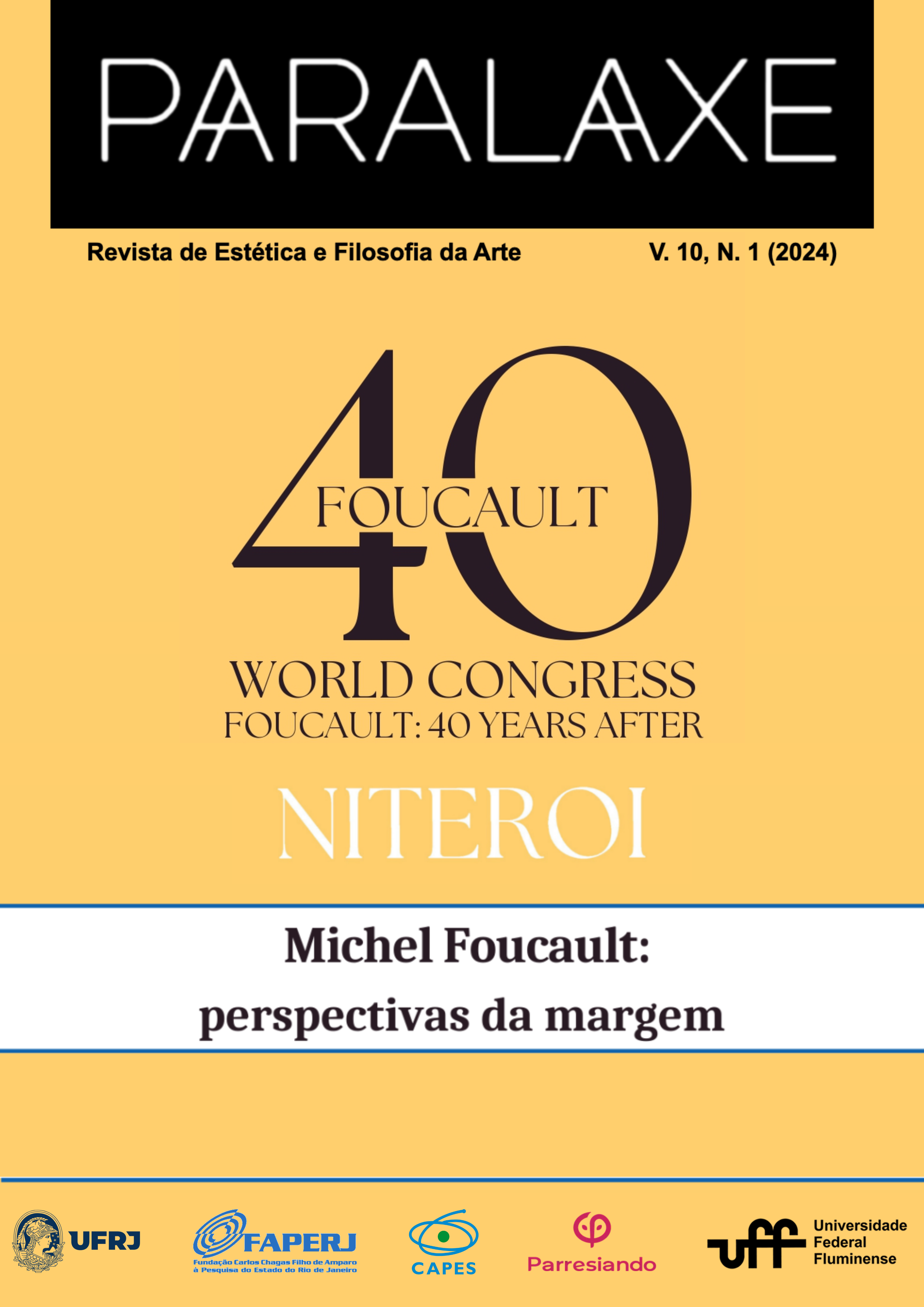“Supor que os universais não existem”
Neoliberalismo enquanto conceito universalizável a partir da arqueogenealogia de Foucault
DOI:
https://doi.org/10.23925/2318-9215v10i1.70002Palavras-chave:
neoliberalismo. arqueologia; dispositivos, neoliberalismo, arqueologia, dispositivosResumo
O artigo propõe que os princípios de raridade e a função-escola (derivados da arqueologia foucaultiana) podem ajudar a compreender a crise de inteligibilidade do neoliberalismo pós-2008. Em vez de tomar o universal neoliberalismo a priori como conceito em que podemos categorizar certas práticas de governo, procuramos entendê-lo a posteriori, emergindo como universal a partir dessas práticas. Mostramos que a resiliência do neoliberalismo (enquanto cosmovisão e prática) vem de sua organização em diferentes dispositivos. O que une as diferentes correntes neoliberais são compromissos epistêmicos que funcionam como enunciados raros produzidos em quatro escolas de pensamento - Chicago, Virginia, Viena e Friburgo.
Referências
BAN, Cornel. Brazil's liberal neo-developmentalism: New paradigm or edited orthodoxy? Review of International Political Economy. Vol.20, n.2, p.298-331, 2013.
BRUFF, Ian; TANSEL, Cemal Burak (Ed.). Authoritarian neoliberalism: Philosophies, practices, contestations. Routledge, 2020.
FÈVRE, Raphaël. A political economy of power: Ordoliberalism in context, 1932-1950. Oxford University Press, 2021.
FISHER, Mark. How to kill a zombie: strategizing the end of neoliberalism. openDemocracy, Londres, 18 jul. 2013.
FOUCAULT, M. The Confession of the Flesh. In: GORDON, Colin. (org.) Power/Knowledge: Selected Interviews, 1972-1977. New York: Pantheon Books, 1977.
FOUCAULT, Michel. A arqueologia do saber. Tradução de Luiz Felipe Baeta Neves. Rio de Janeiro: Forense Universitária, 2007. _. A arqueologia do saber, v. 9, 1969.
HARVEY, David. Spaces of neoliberalization: towards a theory of uneven geographical development. Vol. 8. Franz Steiner Verlag, 2005.
VAN HORN, Robert; MIROWSKI, Philip; STAPLEFORD, Thomas A. (Ed.). Building Chicago economics: new perspectives on the history of America's most powerful economics program. Cambridge University Press, 2011.
INNSET, Ola. Reinventing liberalism. Springer International Publishing, 2020.
LACLAU, Ernesto. Why do empty signifiers matter to politics. Emancipation (s), v. 36, n. 46, 1996.
MARIADAGA, Aldo. The three pillars of neoliberalism: Chile’s economic policy trajectory in comparative perspective, Contemporary Politics, 2020.
MIROWSKI, Phillip; NIK-KHAH, Edward. The knowledge we have lost in information: The history of information in modern economics. Oxford University Press, 2017.
MIROWSKI, P; PLEHWE, D. The Road from Mont Pelerin: The Making of the Neoliberal Thought Collective. Harvard University Press, 2009.
PATEL, Sujata; PARTHASARATHY, D.; JOSE, George. Introduction: Pathways towards Majoritarian Neoliberalism in Mumbai. In: Mumbai/Bombay. Routledge India, 2022. p. 1-23.
PECK, Jamie. Constructions of neoliberal reason. OUP Oxford, 2010.
RODRIK, Dani. Feasible globalizations. 2002. Disponivel em http:// ksghome.harvard.edu/~.drodrik.academic.ksg/Feasible.pdf. Acesso em 18.01.2025.
SLOBODIAN, Quinn. Globalists: The end of empire and the birth of neoliberalism. Harvard University Press, 2018.
SCHLUCHTER Wolfgang, O desencantamento do mundo: seis estudos sobre Max Weber. Rio de Janeiro: Ed. da UFRJ, 2014.
WEBER, Isabella M. How China Escaped Shock Therapy. London: Routledge, 2021.
WHYTE, J. The Invisible Hand of Friedrich Hayek: Submission and Spontaneous Order. Political Theory, 1-29, 2017
Downloads
Publicado
Como Citar
Edição
Seção
Licença
Cedo à revista Paralaxe os direitos autorais de publicação de meu artigo e consultarei o editor científico da revista caso queira republicá-lo depois em livro.


